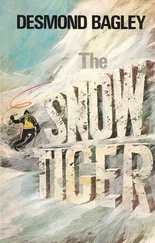I heard about it the next day, while pretending to scratch a dirty spot out of a tabletop. Vijay and a policeman had knocked the rickshaw-puller down, and they had begun beating him; they hit him with their sticks, and when he thrashed at them they kicked him. They took turns. Vijay hit him and the policeman stamped on his face and then Vijay did it again. And after a while the body of the rickshaw-puller stopped wriggling and fighting back, but they kept stamping on him, until he had been stamped back into the earth.
If I may go back for a moment to that WANTED poster, Your Excellency. Being called a murderer: fine, I have no objection to that. It's a fact: I am a sinner, a fallen human. But to be called a murderer by the police!
What a fucking joke.
Here's a little souvenir of your Indian visit to keep with you. Balram Halwai is a vanished man, a fugitive, someone whose whereabouts are unknown to the police, right?
Ha!
The police know exactly where to find me. They will find me dutifully voting on election day at the voting booth in the school compound in Laxmangarh in Gaya District, as I have done in every general, state, and local election since I turned eighteen.
I am India 's most faithful voter, and I still have not seen the inside of a voting booth.
* * *
Now, though the elections were due soon in Dhanbad, life went on as ever within the high walls of the Stork's house. He sighed as his legs were pressed in warm water; games of cricket and badminton went on around him; and I washed and cleaned the two Pomeranian dogs faithfully.
Then one day a familiar face turned up at the gate. Vijay, the bus conductor from Laxmangarh. My childhood hero had a new uniform this time. He was dressed all in white, and wore a white Nehru cap on his head, and had rings of solid gold on eight of his fingers!
Public service had been good to him.
I waited by the gate and watched. The Stork himself came out to see Vijay, and bowed down before him, a landlord bowing before a pigherd's son! The marvels of democracy!
Two days later, the Great Socialist came to the house.
The entire household was abuzz because of the visit. Mr. Ashok stood at the gate, waiting with a garland of jasmine flowers. His brother and his father were by his side.
A car came to the gate, its door opened, and then the face I had seen on a million election posters since I was a boy emerged-I saw the puffy cheeks, the spiky white hair, the thick gold earrings.
Vijay was wearing his red headband today, and holding up the flag with the breaking-shackles symbol. He shouted, "Long live the Great Socialist!"
The great man folded his palms and bowed all around him. He had one of those either/or faces that all great Indian politicians have. This face says that it is now at peace-and you can be at peace too if you follow the owner of that face. But the same face can also say, with a little twitch of its features, that it has known the opposite of peace: and it can make this other fate yours too, if it so wishes.
Mr. Ashok put the garland on the great man's thick, bull-like neck.
"My son," the Stork said. "Returned from America recently."
The Great Socialist squeezed Mr. Ashok's cheeks. "Good. We need more boys to come back and build India into a superpower."
And then they went into the house, and all the doors and windows were closed. After a while, the Great Socialist came out into the courtyard, followed by the old man, the Mongoose, and Mr. Ashok.
I was trying to overhear them, and so pretended to be sweeping the ground, while inching closer and closer to them. I had swept myself right into hearing distance when the Great Socialist tapped me on the back.
"What's your name, son?" he asked.
Then he said, "Your employers are trying to bugger me, Balram. What do you say to this?"
Mr. Ashok looked stunned. The Stork simpered.
"A million and a half is a lot, sir. We'll be happy to come to a settlement with you."
The Great Socialist waved his hands as if dismissing that plea.
"Bullshit. You've got a good scam going here-taking coal for free from the government mines. You've got it going because I let it happen. You were just some little village landlord when I found you-I brought you here-I made you what you are today: and by God, you cross me, and you'll go back there into that village. I said a million and a fucking half, and I mean a million and…"
He had to stop-he had been chewing paan, and now his mouth had filled up with red spittle, which was beginning to dribble out. He turned to me and made the shape of a bowl with his hands. I rushed to the Honda City to get the spittoon.
When I came back with the spittoon, he coolly turned to the Mongoose and said, "Son, won't you hold the spittoon for me?"
The Mongoose refused to move, so the Great Socialist took the spittoon from my hands and held it out.
"Take it, son."
The Mongoose took it.
Then the Great Socialist spat into the spittoon, three times.
The Mongoose's hands trembled; his face turned black with shame.
"Thank you for that, son," the Great Socialist said, wiping his lips. He turned to me and tickled his forehead. "Where was I, now?"
There you have it. That was the positive side of the Great Socialist. He humiliated all our masters-that's why we kept voting him back in.
That night, on the pretext again of sweeping the courtyard, I got close to the Stork and his sons; they were sitting on a bench, holding glasses of golden liquor and talking. Mukesh Sir had just finished; the old man shook his head.
"We can't do that, Mukesh. We need him."
"I'm telling you, Father. We don't anymore. We can go straight to Delhi. We know people there now."
"I agree with Mukesh, Father. We shouldn't let him treat us like this anymore-like we're his slaves."
"Quiet, Ashok. Let Mukesh and me discuss this."
I swept the courtyard twice over, and listened. Then I began tightening Pinky Madam's sagging badminton net, so I could stay near them.
But a pair of suspicious Nepali eyes spotted me out: "Don't loiter in the courtyard. Go and sit in your room and wait for the masters to call you."
"All right."
Ram Bahadur glared at me, so I said, "All right, sir."
(Servants, incidentally, are obsessed with being called "sir" by other servants, sir.)
The next morning, when I was blow-drying Puddles and Cuddles after having shampooed them, Ram Bahadur came up to me, and said, "Have you ever been to Delhi?"
I shook my head.
"They're going to Delhi in a week. Mr. Ashok and Pinky Madam. They're going to leave for three months."
I got down on my knees and directed the blow dryer under Cuddles's legs, pretending not to be interested, and asked, as casually as I could, "Why?"
The Nepali shrugged. Who knew? We were just servants. One thing, though, he did know.
"Only one driver will be taken along. And this driver will get three thousand rupees a month-that's how much they'll pay him in Delhi."
The blow dryer fell out of my hand. "Serious? Three thousand?"
"Yes."
"Will they take me along, sir?" I got up and asked pleadingly, "Can't you make them take me?"
"They'll take Ram Persad," he said with a sneer of his Nepali lips. "Unless…"
"Unless?"
He minted coins with his fingers.
Five thousand rupees-and he would tell the Stork that I was the man to be taken along to Delhi.
"Five thousand-where will I get such money? My family steals my whole paycheck!"
"Oh, well. In that case, it'll be Ram Persad. As for you"-he pointed to Cuddles and Puddles-"you'll be cleaning the dogs for the rest of your life, I guess."
* * *
I woke up, both nostrils burning.
It was still dark.
Читать дальше












